I tend to focus on the physical part of turning. Holding the skew chisel and remembering not to go past half way otherwise I get a catch. OR Focusing on shifting the weight from one leg to the other as I’m doing a long spindle cut. But when it comes to taking our turnings out to the public and making some money, it is no longer the physical actions that matter, now it is all in the head. Money mindset issues can make or break your success as a woodturning business.
Attaching a price to our artistic work is hard enough. Having to interact with people who will evaluate it in the market place makes it even harder. Sometimes our own thoughts really do trip us up and are the biggest challenge. Becoming aware of our money mindset issues is the first step in conquering them. Have you ever had one of these mindsets?
1. I can’t charge a high price
You might be thinking, “I can’t put a high price on my bowls because I’m not an expert turner.” Instead of “expert turner” you might be thinking you are an imposter, just a beginner, or that you are not good enough. What you are really saying is that you, that’s right you, are not worth the price you put on your product.
Let’s look at the practical stuff here. You found the wood. You turned it. You shaped it into what you now have. You finished it. You carted it around in your inventory for how long?
The setting of your price for a specific turning does not reflect on you or necessarily your ability. Set the price that is appropriate for the product you are selling. If it should be higher, then raise the price. Your value is not based on the price of an individual turning.
I’m starting with the easy one. Make sure each piece that you present for sale is at a price that reflects material, labour, and profit. If you sell the turning, you need to be happy about that sale, not discouraged that you didn’t make enough. You set the selling price so don’t set it too low.
The value of a handmade article is the price on the article
I bought a turned pen for $11.00 in Nelson, BC. This is a very low price for a pen. You have to consider that the store is taking a commission on the $ 11.00. When you factor in an exotic wood blank, a pen kit, and a case for the pen, I’m sure the turner only made a few dollars on that sale. This one should have had a higher price. As a woodturner I know the value of a hand turned pen. On the other hand, the average consumer would believe this pen to be worth only what they paid for it — $11. Is this the message you want to be attached to your work?

I was acting curator at a local museum. There was a gift shop in the museum and as curator I was helping a jewelry artist place her work in the display case. During the visit two visitors started examining the necklaces, not knowing that the artist was in the shop. With great interest they looked over the pieces but put the boxes down when they looked at the price. The shoppers moved to another part of the gift shop and stealthily the artist moved to the jewelry display case. She selected a very similar necklace and increased the price by $30.00. She placed the necklace in a different spot in the display case, and moved away.
Before leaving the museum the visitors again scanned the necklaces. Spotting the new one they pick it up and smiled, then gladly paid the higher price. The price on the necklace reflected the value of the item that they wanted to purchase.
Reframe this mindset by thinking I will put an appropriate price on my turnings.
2. Money will ruin my hobby
Have you ever said, “I turn for the fun of it, not for making money?” I’ve heard turners and other artisans declare this mindset several times. Is money really the issue here? The issue is more with the commitments that you think you will have to meet in order to make money rather than money itself.
- I’ll have to be a production turner.
- I’ll always be making inventory to take to craft fairs.
- I won’t get to enjoy the process any more.
Here’s the really nice part of making money from your woodturning. You decide how you want to make it. If you like the challenge of making 35 huge golf tees for a client, Ed Pretty – Wood Artist, then you can do that. If you like turning one of a kind artistic bowls, like Steve Knight in our Woodturning Entrepreneur Facebook Group, you can do that as well. You don’t have to go to shows or do production turning. The choice is yours. You can earn the money the way you want to and keep the enjoyment in your turning.
Reframe this mindset by thinking extra money will help me enjoy my hobby.
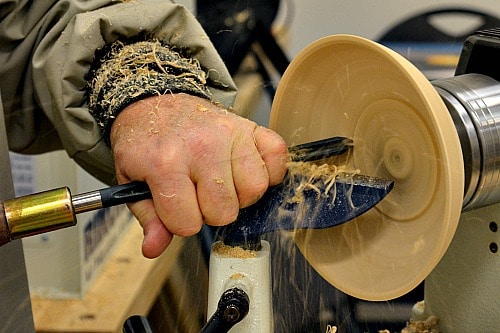
3. Money is the root of all evil
This was a mindset that I had problems with. On the one hand you need money to live, buy groceries, have a car, buy a lathe, and the other necessities of life. As long as the money I brought in was for required expenses there wasn’t a problem. I enjoyed supporting my family. It gave me purpose and satisfaction.
But when I had the chance to bring in more money, it just didn’t happen. I self-sabotaged. I wouldn’t return phone calls, I wouldn’t do the work, or I’d leave it to the last minute and it was a poor rushed result. I didn’t understand why I was doing this to myself. I did this with my business and my woodturning sales as well.
Then I heard that many people think money is bad. Was that my problem? That didn’t make sense. I am a trained professional accountant (otherwise known as a bean counter). I balance books and evaluate how money is used and recorded all the time. However, growing up in a lower middle class family there was an underlying current that if you have a lot of money you must have gotten it by exploiting someone else. Too much money was bad. Having money sets you apart from everyone else who didn’t. Family, relatives, and most of my friends were in the “didn’t” category.
When you include “the love of money is the root of all evil” and “sell all you have and give it to the poor” you confirm that money is bad. As long as I was bringing in enough money for the family and not accumulating money everything was okay. But when I had new opportunities I was handicapping myself with this mindset. This prevented me from seeing money for what it is: a medium of exchange. But this mindset made it a challenge to save for a new car, a new house, or make money from my woodturnings. It wasn’t serving me well.
So think carefully about this money mindset. You might have to dig a bit to figure out how you do relate to money. The nice result is being able to change your mindset once you realize what you are doing.
Money really is a means to accomplishing what you value in your life. There is no magic barrier to prevent your progress. You can earn as much as you want provided your own mindset doesn’t put a road block to your progress.
Reframe this mindset by thinking money is a tool that will help me grow.

Keeping your goals in mind will help you to overcome any mindset issues.
4. Money is not a measure of your value
When you sell your turnings you are building relationships with your customers that go beyond the price paid for a specific piece. Whether you make a little money or a lot does not reflect your value as a person. Your character and your personal values are what make you unique, not the amount of money in your bank account, your net income on the tax return, nor the amount of money you made at your last craft sale.
I had this challenge when my wife’s efforts brought home more money than my efforts. Outwardly I would say that everything was okay but I was really struggling on the inside. For some reason, being the “man of the house,” I felt I had to bring in more money, in order to feel that I had worth. Really, I had connected my value as a person to money.
Honestly I still struggle with this money mindset even when I offer my turnings for sale. The reality is that my customer buys from me because they like the product and they like me as well. The money, however, does not reflect my value. There are lots of reasons why you have a good or a bad day at the market and they are not connected to the value that you have as a person.
Reframe this mindset by thinking my value is not based on money.

5. Money is covering for my fear of success
That’s right. I said “fear of success” not “fear of failure”. For your fear of failure there are tons of motivational helps and guides in all areas of your life. “Fear of success” affects you financially. How? By making it harder for you to earn money.
If you are successful then you will have to keep being successful. That is a stress for a lot of people. If you can win one race then everyone wants you to keep on winning and you might be afraid that you won’t be able to repeat your performance.
If you make a lot of money selling your turnings then you have to keep on doing that. You may be afraid that your creativity will dry up. You might not connect with your market in the same way. What if next year the market wants bowls and you only made boxes?
Again, your value as a person is not defendant on you always being successful. In fact you may gain more from failure than you do from success, as an entrepreneur and business owner. But fear of success can motivate you to sabotage yourself, so you have an excuse to fail.
Being aware of why you are sabotaging yourself is the first step. Then you can realize what you are doing and find ways to be successful without the stress. For me I have to focus on the immediate steps of the process. Too often in looking at the future I get stressed out and side tracked. I’m working on this one too!
Reframe this mindset by thinking I am allowed to have success.
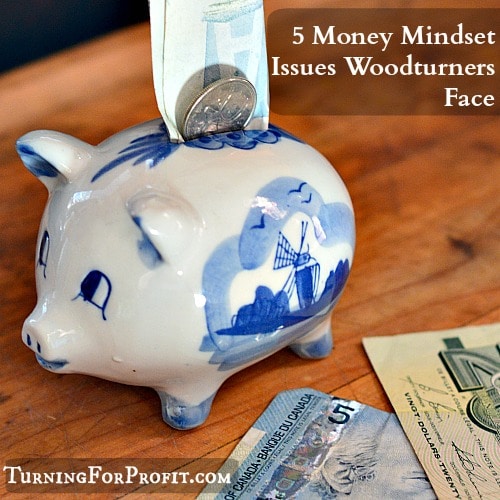
Each of us will have issues with money. It can cause us to be scared to start. Sometimes it shows up when we actually start making more money. Each stage in life will present its own money mindset challenges. Have you struggled with any of these mindsets? What have you done to help you move forward? I would love to hear from you so leave a comment below. Thanks.
In addition to money perspectives turners also face the challenge of what will sell. There really is not a single product that you will be guaranteed to sell a lot of (unless your price is too low, see #1 above). However if you turn what you like to turn and build a relationship with your customer then you will be able to sell lots of your turnings. In addition that fact that you are an artisan and you hand make your product, gives you an amazing competitive edge. As you develop your personal style you will build a reputation and relationships that will support you and your turning business for years.
Turning For Profit
If you have any questions about mindset issues, turning, or the business of turning, please leave me a comment at the bottom of the page.
These posts are for you, the woodturner. If you like turning projects or articles related to the business of turning then please sign up for the Turning For Profit newsletter. Generally it comes out once a week and has links to the current articles, a bit on what I am up to, and usually a question for your response. You can sign up on the right side bar.
I love wood turning and sharing with you. You can follow me on Facebook as well. Thank you for joining me on this woodturning journey. Have fun and remember to turn safely.

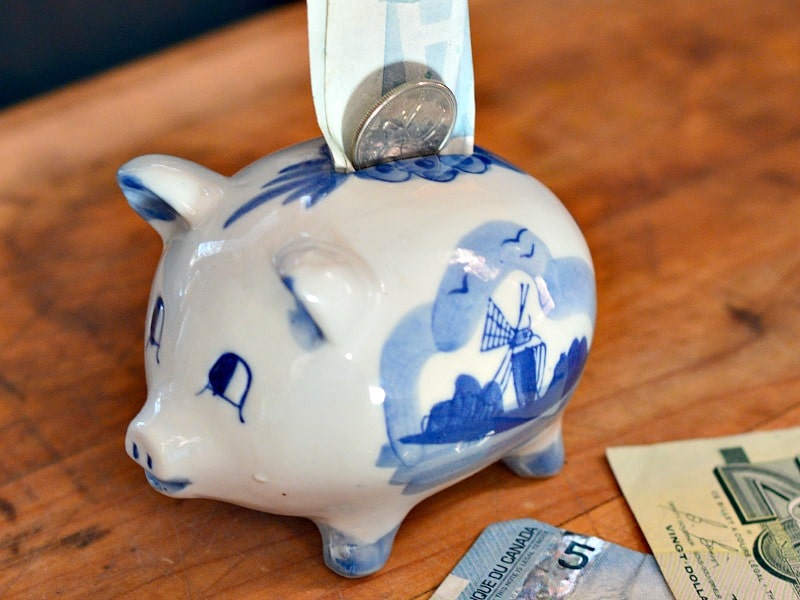


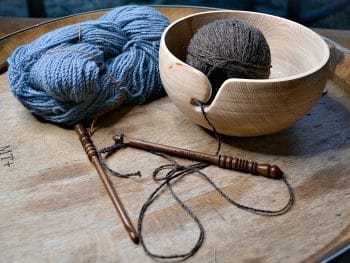
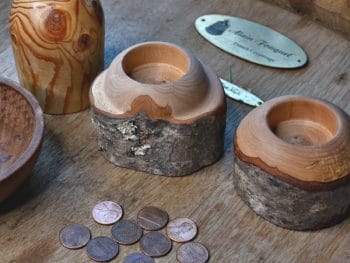
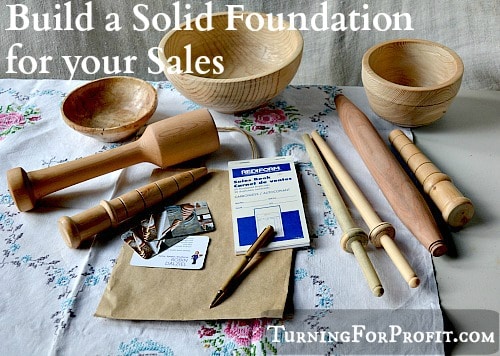

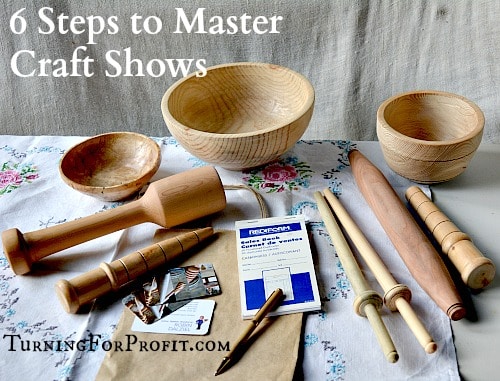
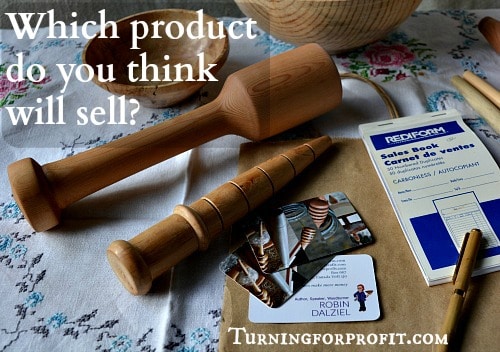


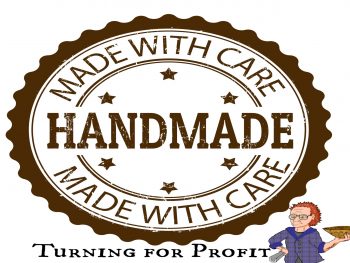
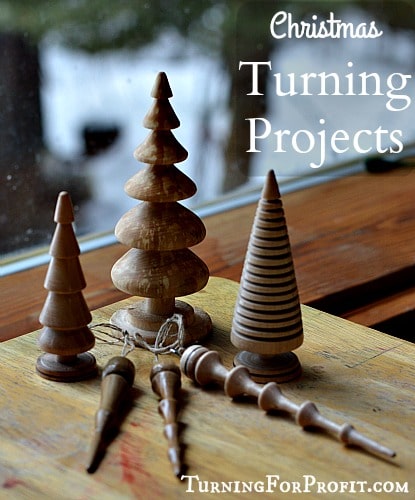
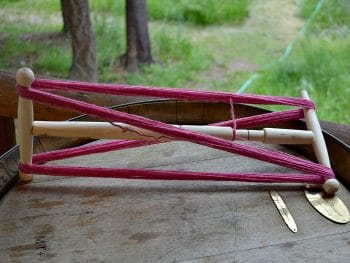

I enjoyed your post on multiple levels. I was once told by a boss that I would”embarrass myself with success”. That encouraging warning has played out many times for me and my friends.
Thanks for your comment Steve. I might not quite understand you. So did this become a barrier to your progress or a way of encouraging yourself? For me I would not want to be “embarrassed” and therefore would be more likely to self-sabotage.
Your latest articl “5 Money Mindset Issues Woodturners Face” is directed squarely at me, I’m sure of it. I will do my very best to follow your recommendations in the future although old habits don’t die easy.
Thank you Harry for your comment. Mindset issues (Money or otherwise) are a very real challenge. I’m glad you are encouraged. Please join our Facebook group “Woodturning Entrepreneur” for more support.
Hey there,
This was a great article. I learned a lot, especially about the mindset issues. Thanks for all you do.
Thanks for all your insights, they have been very helpful
I’ve been turning for about 2 years and have really taken a liking to bowls and bats, and clean spun clock rounds. I only realized that I was trying to keep up with everyone else, about twenty minutes ago, when I read your article. I have never been comfy with my pricing, and have always under valued myself. While I have made some money, I’ve felt like, too much money for my efforts is some how bad. Thank you for enlightening me my friend. As I have tried to turn almost anything in persuit of the golden ticket item, but just realized that I’ve actually sold far more bowls and bats and clocks then honey dippers and bracelets. Nothing against those items, I just have my preference, and only just noticed that. So… Thank you again, for that very informative writing. I shall put it to good use.